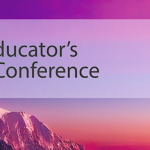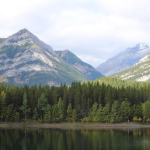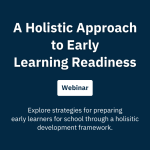Ideas for Outdoor Learning Throughout the Winter
Want ideas for outdoor learning throughout the winter? While it can be tempting to stay indoors, bundling up and heading out onto the land may be the best remedy for the winter blues. The benefits of land-based and outdoor education are numerous, ranging from increased engagement and well-being to decreased risk of transmission of Covid-19. Regardless of where you are on your journey towards indigenizing education and outdoor learning, this quick guide can help you and your learners make the most of the winter months!
Land-Based Learning and Outdoor Education
You may have heard the terms land-based learning and outdoor or environmental education, but how can we define them? A gross oversimplification would be to say land-based learning is based on Indigenous worldviews, culture and ways of knowing and being. However, there is no simple definition. Educators often think of outdoor or environmental education as taking classes outside. Like land-based learning, it too is multifaceted. The common strengths of land-based and outdoor learning are their experiential nature, respect for the environment, capacity for skill development, and health and well-being benefits.
Preparing for Outdoor Learning
Respect the Elements
Planning ahead of time will make your outdoor excursions more enjoyable and educational. Educators can continue most warm-weather outdoor activities with learners during the winter if they dress appropriately. You may need to coordinate with guardians to ensure your learners have the correct equipment to head outdoors, especially if you teach a younger age group.
Collaborate
Both land-based and outdoor education can increase our connectedness to the land. They are also an excellent way to encourage interpersonal connections. Extend an invitation to other staff, parents and community members to join your outdoor activities. The power of a team can take winter learning activities to the next level.
Land-based learning is one of the many steps we can take towards reconciliation and raising cultural awareness. Introducing this practice to learners also introduces them to Indigenous worldviews, knowledge and ways of being in the world. If you are interested in land-based learning, consider inviting an Elder or Knowledge Keeper to your class. Involving the local Indigenous community in land-based education is a respectful action that you and your learners can learn tremendously from. An Indigenous community member or your local Friendship Centre may be able to connect you with the right person and help you follow the cultural protocol for contacting an Elder or Knowledge Keeper.
Outdoor Learning Curriculum Connections
As educators, we often feel we have to balance curriculum expectations and fun activities for our learners. Taking our learners outside allows us to achieve both without compromising. A single outdoor activity can meet many curriculum targets and become a launching point for future learning both inside and outside the classroom.
How many curriculum connections can you make in the activity described below?
Nature Walk
Prepare your learners for a nature walk by discussing what supplies they will need for this winter excursion. Ask learners to prepare a set of instructions for anyone absent that day or another group who may join you. When the day arrives for your nature walk, you and your learners venture outdoors. Challenge your learners to build the highest or strongest snow structure. If the snow is too dry, are there animal tracks they can observe? What can these tracks tell us about the number of animals or the speed they were travelling at? Can we imagine what a day in this animal’s life may be like? Before returning to the classroom, stop to rest in a safe spot outdoors, taking in the sights and sounds of nature.
Writing
The winter season lends itself to many activities that support learning targets within the language curriculum. Simply preparing for an outdoor excursion can become a procedural writing activity in the winter months! Learners can also engage in creative writing by imagining a day in the life of any wildlife they observe during the activity. Of course, there are many more options to connect language with land-based learning.
Storytelling
Land-based learning involves a deep connection with the land and all living things. Indigenous cultures often connect and teach these lessons through stories. Connecting land-based learning with stories by Indigenous authors is a great way to bring the learning outdoors back inside the classroom and vice versa. The First Nations Education Steering Committee has an annotated list of K through 12 resources. Novel studies, short stories, poetry, informational texts can all become a bridge between the classroom and the outdoors.
Practical Math and Physical Science
A simple nature walk can also become an opportunity to track animals and calculate the speed they are travelling at. When outdoors, you can observe the weather. Learn about its patterns and the different conditions that produce things like clouds and precipitation. Building snow structures also relates to geometry, forces, and other math and physical science topics. Learners may even examine organisms collected during a nature walk under a portable paper microscope in a biology unit.
Human Impact
Educators looking to connect to social studies might prompt learners to consider humans’ effects on the animals they observed. Taking a nature walk can also become a starting point for discussing who lives in the area today and who has lived there in the past. Even in an urban landscape, we can observe nature and discuss the effects of more permanent structures humans have created there.
Get Creative!
These are only a few possibilities for learning outside during the winter months. Land-based or outdoor education can come in many forms. Educators can scale it to their level of understanding and comfort.
Has something here inspired you try outdoor learning this winter? Do you already have some experience teaching outdoors in the winter? We would love to hear from you! Please email us and share your experiences.







